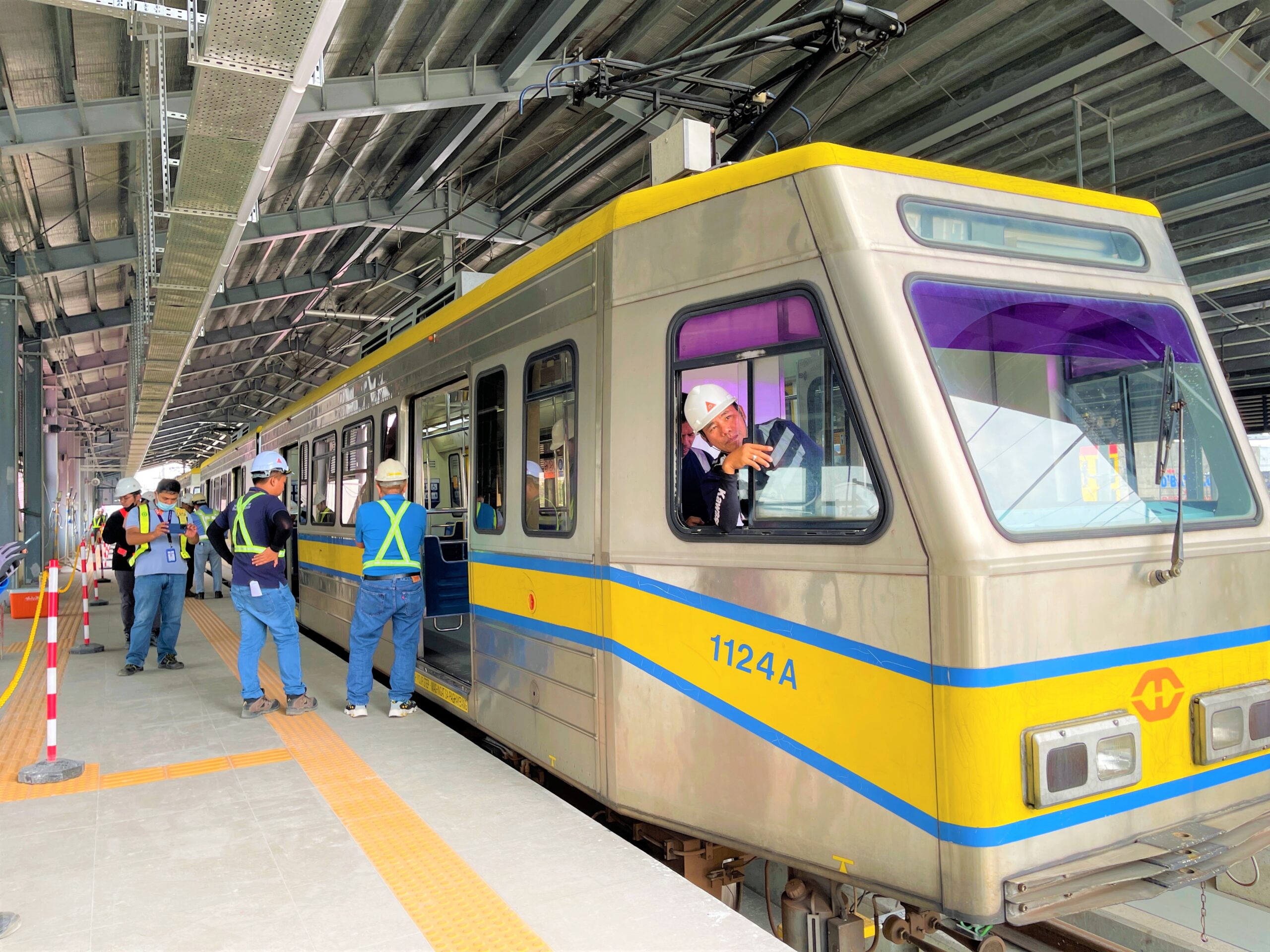LRT line to Cavite still 7 years from becoming operational

The Light Rail Transit Line-1 (LRT-1) conducts a train test run in the phase 1 of the Cavite Extension on December 19, 2023. | Photo from LRTA.
First conceived in 1999 but earnestly begun in 2019, the last phases of the Light Rail Transit Line 1 (LRT 1) extension linking Metro Manila and Cavite will take two more years to start and seven years, or until 2031, to become fully operational.
During a site inspection at LRT 1 Dr. Santos station in Parañaque on Friday, Transportation Secretary Jaime Bautista told reporters that 94 percent of the right-of-way for phases 2 and 3 of the LRT 1 Cavite extension project has been secured.
The second phase consists of Las Piñas station and Zapote station while the third and last phase is the Niog station.
LRT 1 private operator Light Rail Manila Corp. general manager Enrico Benipayo said they were also working on relocating water and electric lines along the railway’s path before proceeding with construction.
The first phase is on track to be operational by the fourth quarter of this year. It was 98.2-percent done as of April.
READ: Phase 1 of LRT 1 Cavite Extension is 98.2% completed
This segment includes five stations: Redemptorist, MIA, Asia World, Ninoy Aquino, and Dr. Santos.
Far from near completion
“The nearing completion of the LRT 1 Cavite Extension phase 1 is a testament to the government and private sector’s commitment to improving public transportation in the country,” Benipayo said.
Transportation Assistant Secretary Jorjette Aquino said passengers going to Dr. Santos station would pay P25 if they are coming from Baclaran station and P45 if they start the journey from Fernando Poe Jr. station.
Bautista said an intermodal terminal would rise at Dr. Santos station to accommodate different modes of transport. He added they were also planning to build another facility of the same kind at Niog station.
The 11.8-kilometer extension project, which covers major cities such as Quezon City, Caloocan, Manila, Pasay, and Parañaque, starts at the Baclaran station of LRT 1. It is designed to cater to up to 800,000 passengers daily.